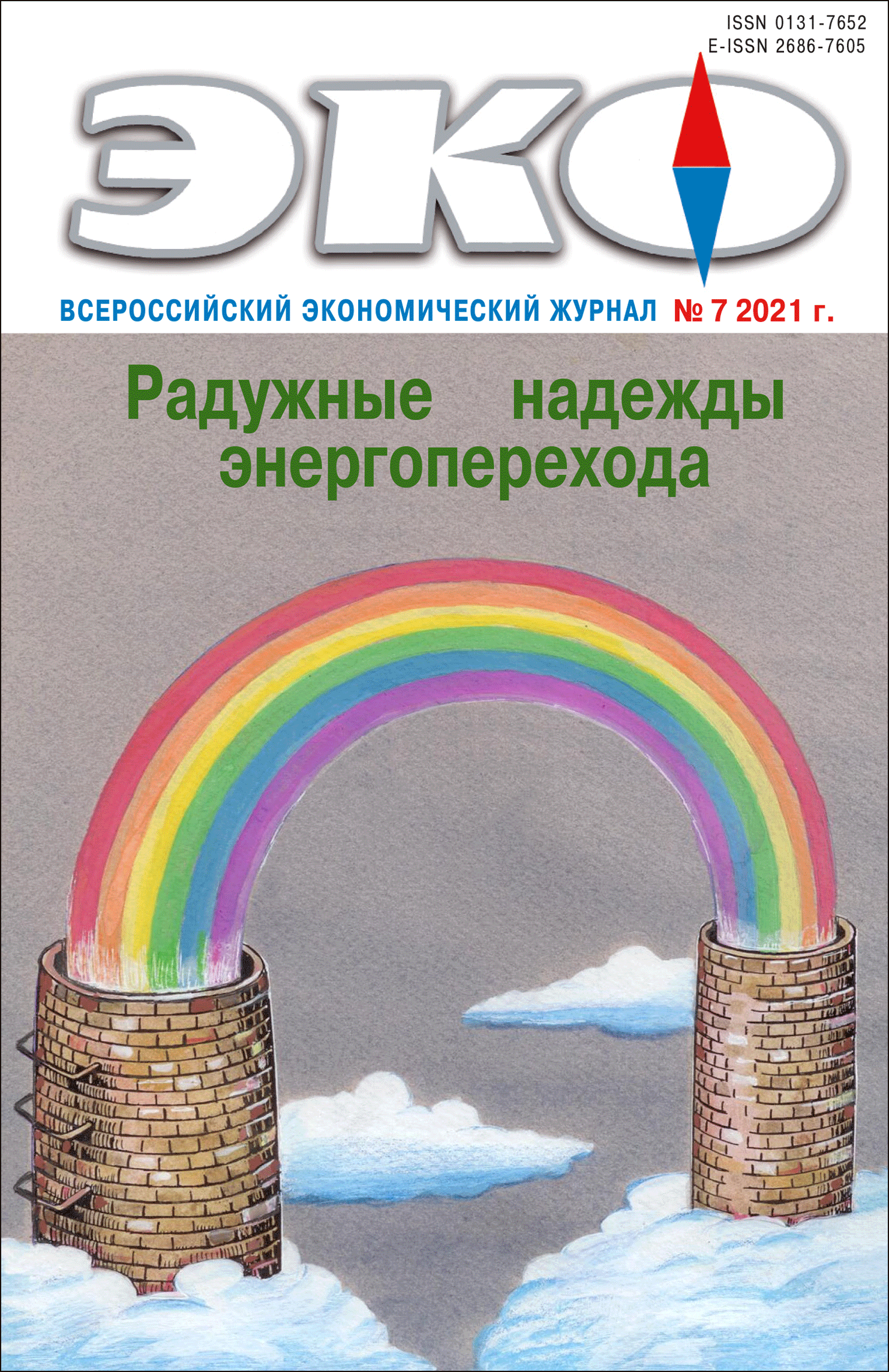BOOKSHELF
On Social Orders and Ways to Comprehend and Construct Them (about the new book by V. M. Efimov)
Published 2021-07-13
Keywords
- economic science,
- social orders,
- social and economic institutions,
- economic power,
- methodology of economic research
- original institutionalism,
- new institutional theory,
- payment community,
- monetary multiplier,
- experimental economics,
- economic experiments ...More
How to Cite
1.
Teslya П. On Social Orders and Ways to Comprehend and Construct Them (about the new book by V. M. Efimov). ECO [Internet]. 2021 Jul. 13 [cited 2026 Feb. 27];51(7):171-92. Available from: https://ecotrends.ru/index.php/eco/article/view/4286
Abstract
Mr. Efimov develops an application of the methodology of pragmatism of J. Dewey in Economic Research. The application of this methodology is presented in his book in the traditions of «original» institutionalism developed by J. Commons and the German Historical and Ethical School of G. Schmoller. The author critically examines the main current of modern economic thought, namely, the new institutional theory. His book shows the apologetic and anti-scientific nature of the latter. The fundamental innovation of the book under discussion is consideration of monetary social orders, in which power is manifested through the institution of money, as opposed to patronal orders, in which power is manifested directly. Institutions are interpreted as customary rules, behind which there are beliefs and thoughts. The money, by its nature, is a proof of debt. It requires consideration of the role of payment communities, their role in the creation and use of money as an instrument of power. The review considers issues that require further development within the framework of the scientific topics raised in the book. In particular, it is proposed to consider the following issues: the development of an experimental approach in economic research, improving the training of researchers in economicс science, and a number of others.References
- Алле М. Современная экономическая наука и факты // THESIS. 1994. Вып. 4. С 11–19.
- Бородкин Л. И. Преемственность и разрывы в экономической истории России XIX–XX вв.// ЭКО. 2021. № 4. С. 8–28. DOI: 10.30680/ ECO0131–7652–2021–4–8–28
- Гребер Д. Долг: первые 5000 лет истории. М.: Ад Маргинем Пресс. 2015.
- Ефимов В. М. Деньги, социальные порядки и экономическая наука: монография/ В. М. Ефимов. М.: КУРС, 2021а. 296 с. (Серия «Наука») ISBN978–5–907352–12–4
- Ефимов В. М. Схоластическая риторика как метод производства текстов в сообществе экономистов-теоретиков// ЭКО. 2021b. № 3. С. 167–192. DOI: 10.30680/ECO0131–7652–2021–3–167–192
- Ефимов В. М. Экономическая наука под вопросом: иная методология, история и исследовательские практики. М.: Курс: ИНФРА-М. 2016
- Лакомски-Лагерр О. Кредитная сущность денег глазами Йозефа Шумпетера: вклад в «монетарный анализ» капитализма // Journal of Institutional Studies, 2020. № 12(4). С. 54–76. DOI: 10.17835/2076–6297.2020.12.4.054–076
- Шапиро Н. А. Институциональная экономика в современной экономической науке, или по поводу всего в статье В. М. Ефимова «Анти-Аузан: критика одной социальной философии»// ЭКО. 2021. № 2. С. 176–192. DOI: 10.30680/ЕСО0131–7652–2021–2–176–192.
- Harrison G. W.; List J. A. (2004). Field Experiments // Journal of Economic Literature, Vol. 42. No. 4. Рp. 1009–1055.

